 |
Convert APE to FLAC
|
Total Audio MP3 Converter converts APE to FLAC
easily and quickly. The software supports more than 90 audio and video formats
as input, and converts to popular audio formats such as AAC, AIFF, M4A, M4B, MP3,
OGG, WAV, WMA, and so on.
Total Audio MP3 Converter supports batch conversion,
and is full compatible with Vista and Windows 7 (both 32-bit and 64-bit editions).
- Free Download Total Audio MP3 Converter
- Install the Software by Step-by-step Instructions
- Launch Total Audio MP3 Converter
- Choose APE Files
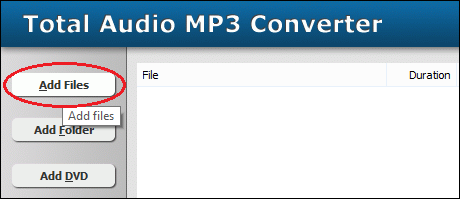
Click "Add Files" button to choose APE files and add
them to conversion list.
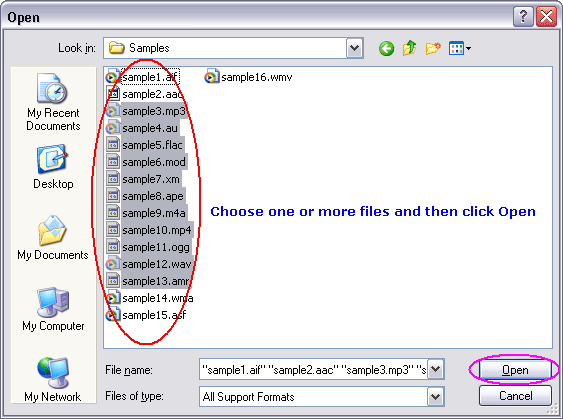
Choose one or more APE files you want to convert and then click Open.
Total Audio MP3 Converter will open the files, and then read file information such as
duration, bit rate, sample, and channels, and show them on the program.
- Choose Target File Format
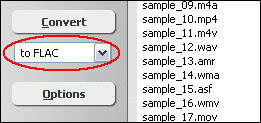
Choose "to FLAC"
- Convert APE to FLAC
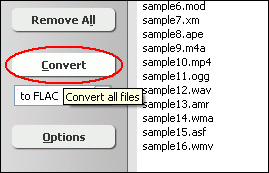
Click "Convert" to convert APE files to FLAC.
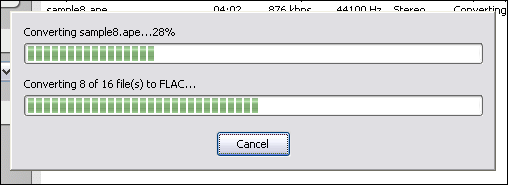
The software is converting APE files to FLAC.
- Play & Browse
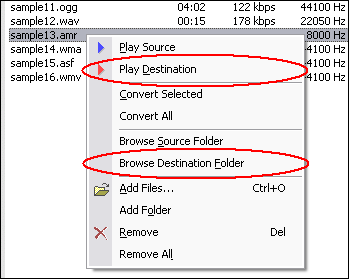
Right-click converted item and choose "Play Destination" to play
the destination file, choose "Browse Destination Folder" to open
Windows Explorer to browse the destination file.
- Done
Top
What is APE?
Monkey's Audio is a file format for audio data compression. Being a lossless compression
format, Monkey's Audio does not remove information from the audio stream, as lossy
compression formats such as MP3, AAC, and Vorbis do. Like other methods of compression,
the main advantage of using Monkey's Audio lies in a reduction of bandwidth and/or
a reduction in storage requirements. A digital recording (such as a CD) encoded
to Monkey's Audio format can later be decompressed into an identical copy of the
original audio data. Like the Apple Lossless format, files encoded to Monkey's
Audio are typically reduced to about half of the original size.
What is FLAC?
Free Lossless Audio Codec (FLAC) is a file format for lossless audio data compression.
Being lossless, FLAC does not remove information from the audio stream, as lossy
compression formats such as MP3, AAC, and Vorbis do. FLAC's primary author is
Josh Coalson. FLAC reduces bandwidth and storage requirements without sacrificing
the integrity of the audio source. A digital audio recording (such as a CD track)
encoded to FLAC can be decompressed into an identical copy of the audio data.
Audio sources encoded to FLAC are typically reduced in size 40 to 50 percent (46%
according to their own comparison). FLAC is suitable for everyday audio playback
and archival, with support for tagging, cover art and fast seeking. FLAC's free
and open source royalty-free nature makes it well-supported by many software applications,
but FLAC playback support in portable audio devices and dedicated audio systems
is limited at this time.
Convert APE to FLAC Related Topics:
|






